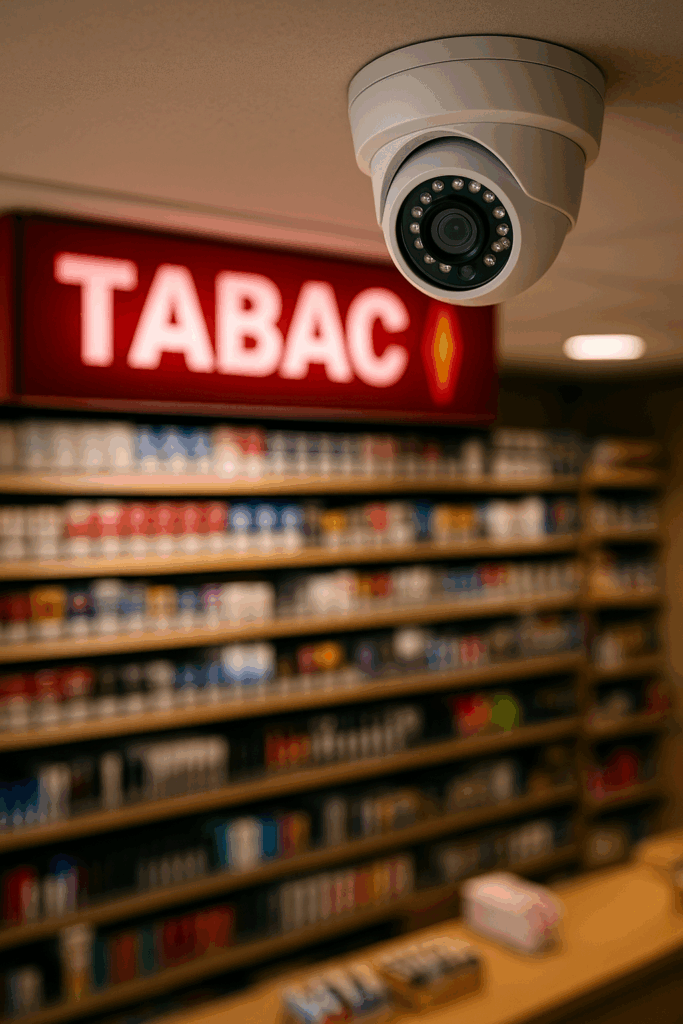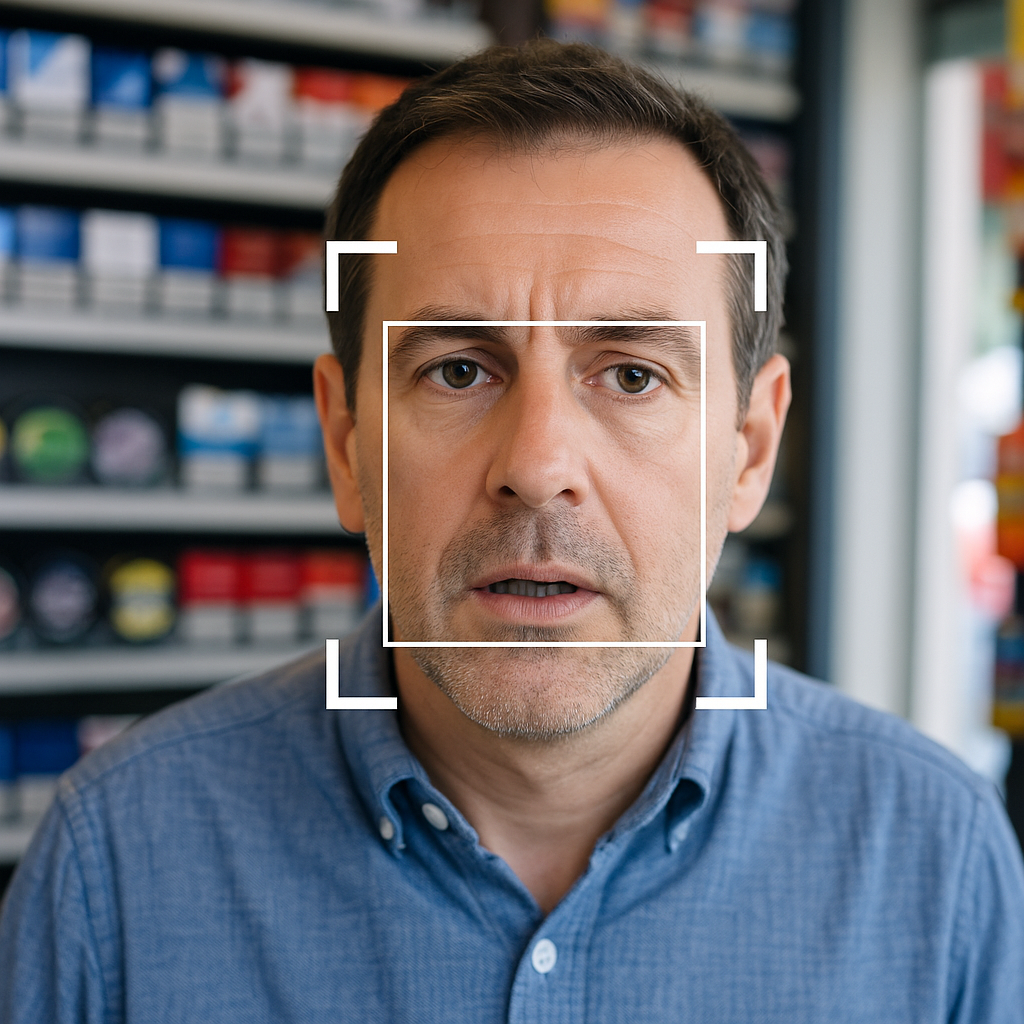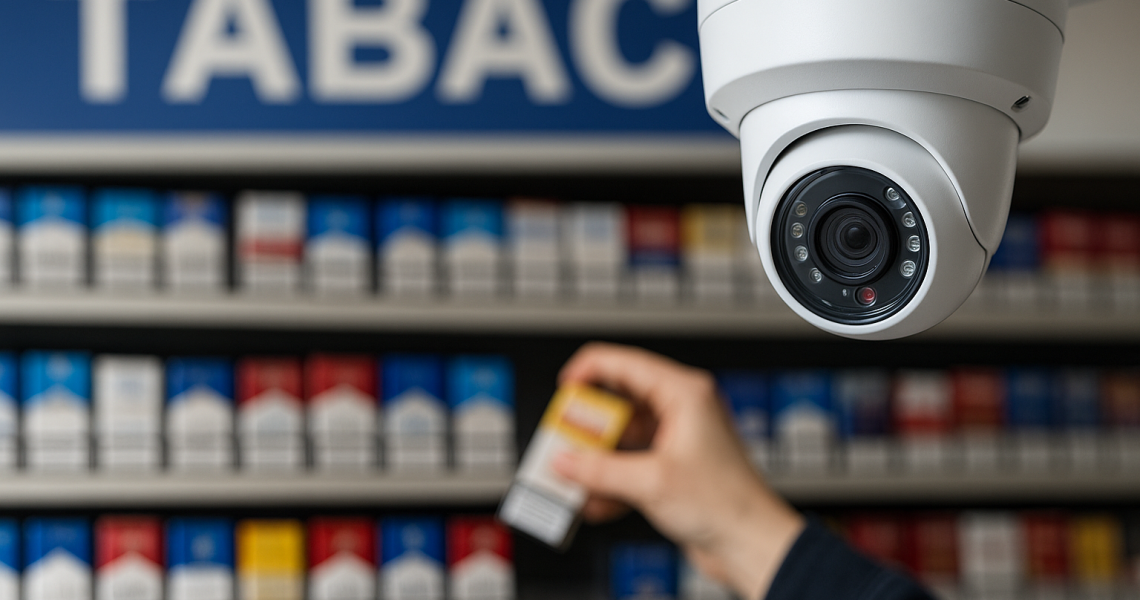In a context where the protection of minors has become a public issue, the question ofage control when buying cigarettes is now being played out in the space of tobacconists. The French Ministry of Health is considering the use of cameras equipped withartificial intelligence, capable of assessing the age of customers in real time. But the CNIL, guardian of the data code, remains cautious. This report reveals the stakes of a system at the crossroads of tobacco controlhealth safety and civil liberties.

Why equip tobacconists with smart cameras?
Tobacco shops are subject to a strict law: the purchase of tobacco products is forbidden to under-18s. However, manual controls are no longer enough. The parallel market, false papers, deception… a survey shows that 20 to 30% of cigarette purchases in France involve minors. The arrival of facial recognition and artificial intelligence systems promises a more reliable detection rate, without adding staff or increasing fines.
Security, data, privacy: where does CNIL stand?
The French Data Protection Authority (CNIL ) has published a mixed report. It recognizes the advantages of this technological process, but is concerned about excessive use of personal data.
It points out that these cameras cannot be used without legal control: operation must be transparent, storage limited to what is strictly necessary, and everything must comply with the legal framework. National jurisdictions may require an opinion or prior authorization.
Tobacconists, mayors, police: who manages what?
Installing these cameras in a public place, such as a tobacconist’s, is an exercise shared between the operating companies, the police and municipal services. Each mayor can issue an opinion, or even a decree, on the use of augmented cameras.
At local level,public space is monitored, but this type of device would require coordination between the courts, the relevant ministry and the CNIL, to guarantee legality.

Technology: how does the system really work?
The cameras use high-definition sensors, combined with an artificial intelligence system that analyzes the face in real time. Using feature recognition (forehead, eyes, chin), the tool estimates an approximate age. If the person appears to be a minor, a message warns staff: “Purchase forbidden, please show ID”.
Total purchases are tracked anonymously. No images are saved, and no personal information is collected. A subtle balance between health safety and respect for privacy.
What does justice and public law have to say?
Experiments have been carried out in several countries. In the USA, some jurisdictions have banned facial recognition, while others authorize it subject to conditions. In France, the CNIL requires a rigorous impact study, particularly with regard to the system’s level of reliability.
The Ministry could regulate these systems via a decree, specifying how the images are managed, who has access to them, and how long they are kept.
Read also: Anti-sugar laser training at Mylasertabac, find out more …
Challenges and prospects: towards a framed digital future?
The deployment of such cameras raises three major questions:
- Real effectiveness: what is the success rate in detecting minors?
- Public trust: doespublic opinion accept being filmed?
- The legal framework: data management must be transparent, proportionate and secure.
Faced with these challenges, tobacconists, the CNIL, the Ministry and the courts need to work together. Without this relationship of trust, all technological progress risks being blocked. The stakes are twofold: to protect minors and to preserve the rights of everyone.
Conclusion: a challenge for society
The widespread use of augmented cameras in tobacco shops poses a real French dilemma: between giving priority to public health, modernizing the tobacco market, and guaranteeing individual freedoms. The framework already exists: law, CNIL, courts, municipal services and police. All that remains is to fine-tune the balance between security and respect for citizens.
In a world where digital technology is becoming increasingly important, these systems could well become the norm in the fight against youth smoking. That’s provided that every position is taken: those of companies,administration, government, and every citizen. The future ofage control lies in artificial intelligence that is responsible, supervised and, above all, accepted by all.
